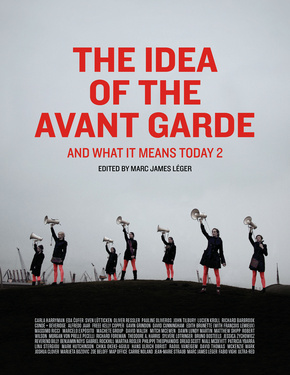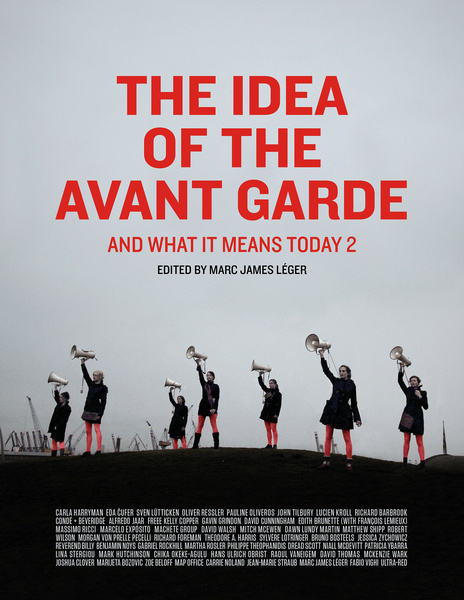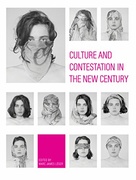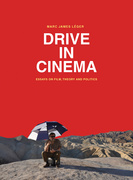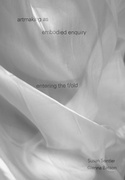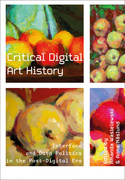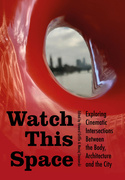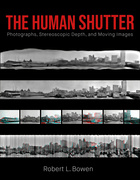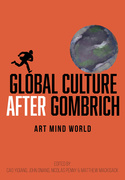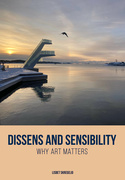The Idea of the Avant Garde (Book)
And What It Means Today, Volume 2
The first volume of The Idea of the Avant Garde – And What It Means Today provided a lively forum on radical art theory and partisan practices. This second volume presents the work of another 50 artists and writers, exploring the diverse ways that avant-gardism develops reflexive and experimental combinations of aesthetic and political praxis.
Edition
The concept of the avant garde is highly contested, whether one consigns it to history or claims it for present-day or future uses. The first volume of The Idea of the Avant Garde – And What It Means Today provided a lively forum on the kinds of radical art theory and partisan practices that are possible in today’s world of global art markets and creative industry entrepreneurialism. This second volume presents the work of another 50 artists and writers, exploring the diverse ways that avant-gardism develops reflexive and experimental combinations of aesthetic and political praxis. The manifest strategies, temporalities, and genealogies of avant-garde art and politics are expressed through an international, intergenerational, and interdisciplinary convocation of ideas that covers the fields of film, video, architecture, visual art, art activism, literature, poetry, theatre, performance, intermedia and music.
Marc James Léger is an artist and writer living in Montreal. His essay on the aesthetic theories of Henri Lefebvre was published in Andrew Hemingway’s edited volume Marxism and the History of Art (2006). He is author of Brave New Avant Garde (2012), The Neoliberal Undead (2013), Drive in Cinema (2015), Don't Network (2018) and Vanguardia: Socially Engaged Art and Theory (2019). He is editor of Culture and Contestation in the New Century (2011) and of the two volumes of The Idea of the Avant Garde - And What It Means Today (2014, 2019) as well as co-editor with David Tomas of Zapantera Negra: An Artistic Encounter Between Black Panthers and Zapatistas (2017).
Marc James Léger The Idea of the Avant Garde
Martha Rosler Take the Money and Run: Can Political and Socio-Critical Art ‘Survive’?
Sven Lütticken Permanent Cultural Revolution
David Cunningham Elementary
David Thomas We Know What We’re Doing
Massimo Ricci Just Another Establishment Ultra-red Ways of Listening: Socially-Practiced Art and Solidarity
Pauline Oliveros Quantum Avant Garde
John Tilbury 18 Questions
Richard Barbrook Ludic Training for the Situationist Revolution
Gabriel Rockhill The Theoretical Destiny of the Avant Garde
Machete Group What Does the Avant Garde Mean Today?
Mark Hutchinson For the Avant Garde: Notes on Art, Capitalism and Revolution
Chika Okeke-Agulu The Spectral Avant Garde
Gavin Grindon Disobedient Objects
Marcelo Expósito Festive Disorder, Subjective Mutation and Revolutionary Becoming
McKenzie Wark #Marx21c
Sylvère Lotringer After the Avant Garde
Patricia Ybarra ‘The Whole Thing Is Over by Nine O’Clock’: The Rude Mechs’s Adaptation of Greil Marcus’ Lipstick Traces
Kelly Copper On the Perverse Pleasures of Indifference
Morgan von Prelle Pecelli Seeing What’s Really There: A Talk with Richard Foreman
Robert Wilson Construction in Time and Space
Carrie Noland Experimental Living: Westbeth Artists Housing, Merce Cunningham, and Me
Lucien Kroll Revolutionary Homeopathic Engineering and Empathetic Architecture
Hans Ulrich Obrist A Conversation with Raoul Vaneigem
V. Mitch McEwen and Dawn Lundy Martin On the House Opera | Opera House in Detroit
Lina Stergiou Praxis: The Everyday NOT as Usual
Eda Čufer Feelings and Territories: Makrolab’s Avant-Garde Inquiries
MAP Office (Gutierrez + Portefaix) Urban Spectacle in Post (Socialist) China and Other Illuminations
Oliver Ressler Socialism Failed, Capitalism Is Bankrupt. What Comes Next?
Condé + Beveridge Cultural Relations
Edith Brunette (with François Lemieux) The Imaginary Exit of Disengagement
Freee The New Freee Manifesto
Zoe Beloff The Advanced Guard and the Rearview Mirror
Reverend Billy and The Church of Stop Shopping The Teachable Life-or-Death of Ferguson
Dread Scott Revolutionary Archive
Marc James Léger Austerity and Impunity, and a Few Words with Theodore A. Harris
Matthew Shipp Language Out of the Abyss
Carla Harryman DISK
Niall McDevitt Contra Avant-Garde or Why Poets Should Reclaim the Avant Garde from the Academics
Joshua Clover The Genealogical Avant Garde
Marijeta Bozovic Poetry on the Front Line: Kirill Medvedev and a New Russian Poetic Avant Garde
Jessica Zychowicz FE/M/EN and the Avant Garde: Locating the Text
Marc James Léger A Punk Prayer to the Lack of Reality
Benjamin Noys Epic Fails: Scale, Commodity, Totality
Fabio Vighi Capture and Symptom in Leos Carax’s Holy Motors
Philippe Theophanidis Godard Avant-Gaze
Jean-Marie Straub The Bach Film
Alfredo Jaar The Marx Lounge
David Walsh To Create a Genuine Artistic ‘Avant Garde’ Means Confronting Critical Historical Issues
Bruno Bosteels Three Paradoxes of Communist Art
'More than a hundred years after the eruption of Dada, and fifty years after its loudly proclaimed death, the spectre of the avant garde returns in renewed and vibrant forms. This excellent collection gives an overview of just how and why a renewed experimental artistic politics is important.'
'One hundred years after the October Revolution, why does art continue to be meaningful in terms of ideological disruption, that is, in avant-garde terms? If you are looking to understand this question, The Idea of the Avant Garde Vol 2 is the place to start. Navigating the decade marked by the financial apocalypse of 2008, this volume introduces the twenty-first century anti-capitalist zeitgeist in no uncertain terms: art reserves the right to not let us lose sight of what is wrong, who is responsible and what it means to take sides.'
'The Idea of the Avant Garde’s plurality of opinions and approaches is its chief merit. Like its 2014 predecessor, the book seeks to portray how contested the avant-garde is, both conceptually and historically. That ambition shapes not only the number and selection of contributors, but also the design. [...] Léger’s inclusion of ambivalent or noncommittal voices—many belonging to performers—is one of the volume’s more refreshing aspects, in part because it demonstrates the fluctuating definitions and valences of the term. [...] As a whole though—and especially as a whole that refuses to cohere—Léger’s The Idea of the Avant Garde offers a telling take on what the avant-garde has been, is now, and might become.'

